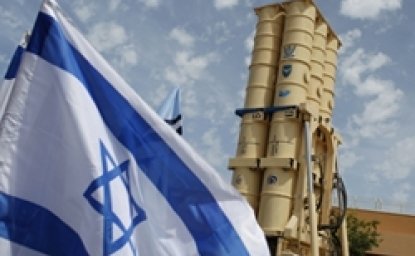Iran's Nuclear Program: Reaction to the IAEA Report
Is Iran destined to become a nuclear power? Aaron David Miller and Michael Adler weigh the options, including whether military action might succeed where sanctions and diplomacy so far failed.
Is Iran destined to become a nuclear power? Aaron David Miller and Michael Adler weigh the options, including whether military action might succeed where sanctions and diplomacy so far failed.
The world's nuclear watchdog, the International Atomic Energy Agency, is set to release a report offering further evidence that Iran is determined to acquire the technology necessary to build nuclear weapons. Even before the release of the latest report, evidence of the Iranian regime's nuclear ambitions was fairly persuasive. With Iran moving closer to adding nuclear might to its arsenal, questions emerge about what the U.S. -- or Israel -- can or will do about it.
We spoke with two Wilson Center experts to gain insight into what might develop. Aaron Miller worked with six secretaries of state for two decades to formulate U.S. policy in the Middle East. Michael Adler covered the IAEA as reporter and is now writing a book on diplomacy and Iran's nuclear ambitions.
Michael Adler is a Wilson Center Public Policy Scholar and journalist who previously worked for Agence France-Presse news agency. He is writing a book on the use of diplomacy in the Iranian nuclear crisis which he covered extensively while in Vienna from 2002-2007, where he reported on the International Atomic Energy Agency (IAEA).
Aaron David Miller is a Public Policy Scholar at the Wilson Center. For two decades, he served at the Department of State as an advisor to six secretaries of state, where he helped formulate U.S. policy on the Middle East and the Arab-Israel peace process, most recently as the Senior Advisor for Arab-Israeli Negotiations. He is the author of several books including, "The Much Too Promised Land: America's Elusive Search for Arab-Israeli Peace."

The Wilson Center’s Middle East Program serves as a crucial resource for the policymaking community and beyond, providing analyses and research that helps inform US foreign policymaking, stimulates public debate, and expands knowledge about issues in the wider Middle East and North Africa (MENA) region. Read more




